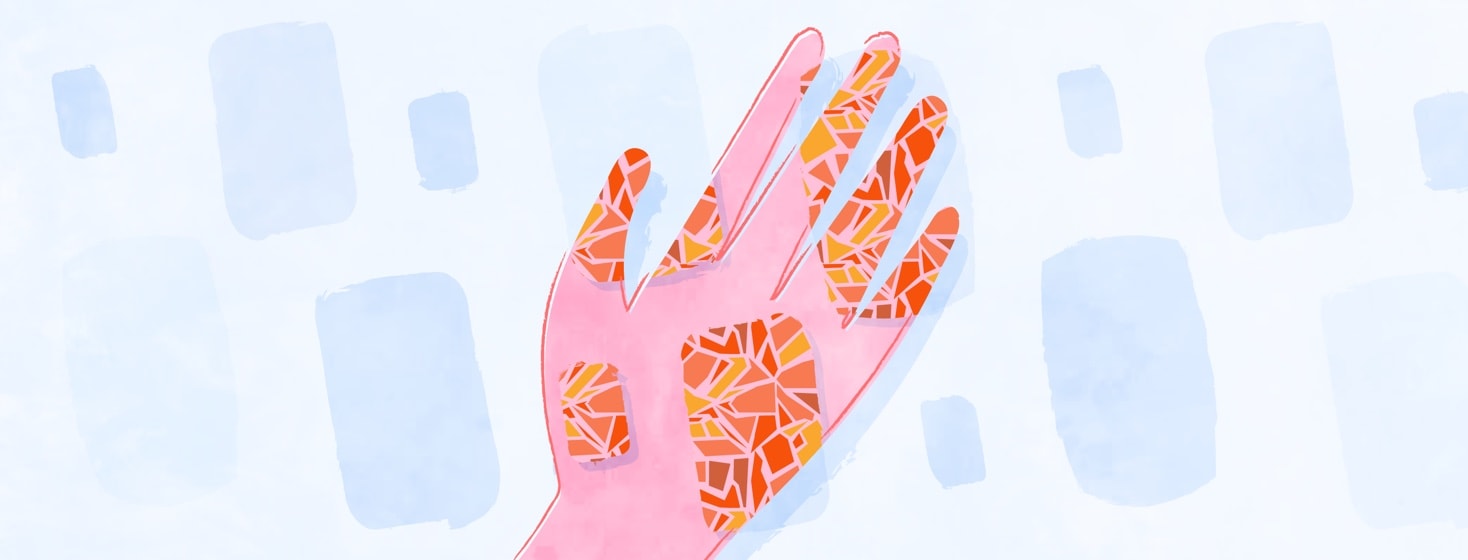When Psoriasis Is An Invisible Illness
You’ve probably heard that some diseases are invisible because the patient looks healthy on the outside, but symptoms are hidden in plain view. Take, for example, psoriatic arthritis. Many would look at a patient and not see the inflammation, swelling and tenderness of joints and tendons, and they might overlook the wincing of the pain experienced while in a flare. When the world can’t see your symptoms, it makes it easier to dismiss your challenges.
When visible psoriasis symptoms match the invisible ones...
My son diagnosed at age 4 with psoriasis and age 5 with juvenile psoriatic arthritis. For much of his childhood, the physical redness and itchiness of plaques were visible signs that something was wrong. At times, because people could see his psoriasis, it made it a little easier to explain to teachers, classmates and relatives that he struggled with pain and had physical challenges that went beyond the plaques.
Of course, he still had his fair share of teasing and mean comments thrown his way. But for the majority of people he met, they offered compassion and rarely dismissed his disease as being just an inconvenience.
Maybe that’s why I secretly was relieved when he was in a flare of psoriatic arthritis, he was usually flaring with psoriasis, too. It just made it easier to explain. And some days, that’s a blessing. Please don’t get me wrong. I would never wish anyone to have psoriasis, but rather, I was just trying to make the best of a very bad situation and look for any silver lining that may appear.
The impact of hiding my psoriasis plaques...
Unfortunately, these visible signs of red, cracked, bleeding plaques rarely were visible with my psoriasis disease.
With scalp psoriasis that is often hidden by my thick, curly hair, and the genital psoriasis that is hidden under my clothing, many people think I’m completely clear. It’s almost as if my psoriasis disease is invisible.
Sure, I might not be covered with plaques all over my body – and my heart aches for those of you who do – but I still have psoriasis.
Oh trust me, those psoriasis symptoms are still there!
Even with my psoriasis in areas that aren’t easily seen, I still have scaly, red, irritated skin on my scalp. That means I still have unbearable itchiness in my crotch. Yes, there are nicer names than “crotch,” but when that area is burning and itching out of control, there’s nothing nice about it.
And let’s not forget that I am also still susceptible to other disease like heart disease, diabetes, and Crohn’s simply because I have psoriasis. Because it seems that having one chronic disease is just not enough – or two in my case because I also have psoriatic arthritis. Sigh…
The impact of an invisible illness
I think it is the “supportive” comments from friends and relatives that annoy me the most: “You look clear! That’s so awesome! So happy for you!” or “Your skin looks great. The spots of psoriasis you do have can’t be that bad.” I think these comments annoy me so much because the people who say them are trying to be nice. They are trying to be positive and supportive.
It’s just that when I am in a flare in areas they can’t see, it’s almost like I have to prove that I do have psoriasis. I don’t necessarily want to take out my pony tail to reveal my scalp psoriasis, and I certainly can’t drop my pants to show the other areas.
So, yeah, I often do feel like my psoriasis is invisible. It’s downright frustrating when I’m trying to explain how challenging it is in daily life, how I am not happy that I have psoriasis, or how I avoid certain situations in order to keep my psoriasis from getting worse.
For me, the saying, “Seeing is believing,” is a real let-down because in regular, real-life situations, I often can’t prove that I have it.
Do you find that people dismiss your psoriasis symptoms, just because they can’t see them? Share your experiences in the comments.

Join the conversation